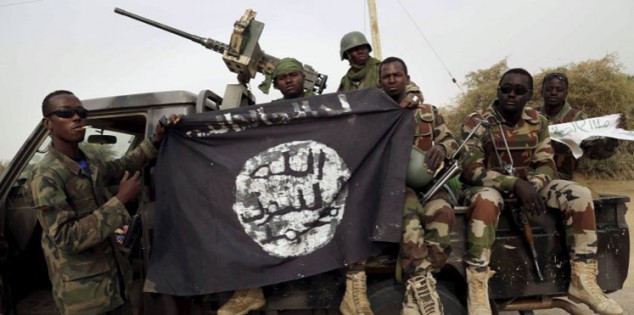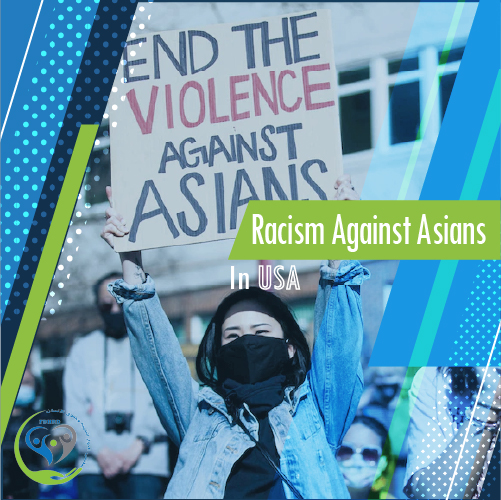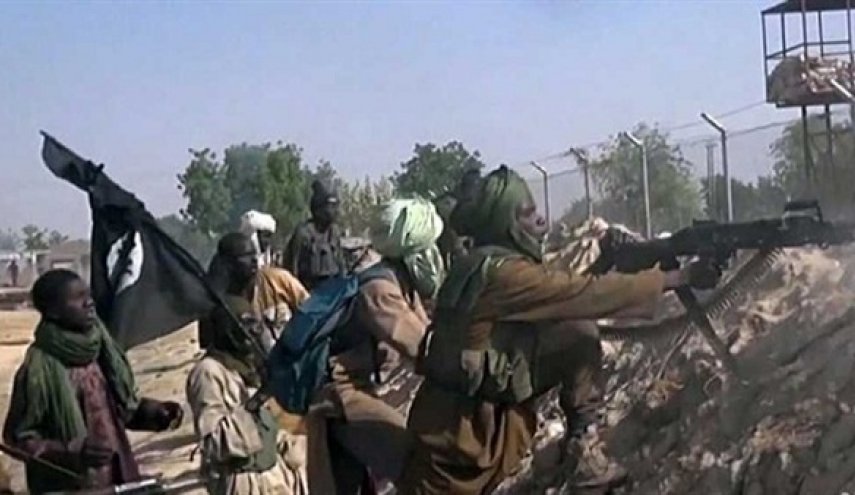Wednesday, March 31, 2021
Press Release
———————————————–
The African Studies Unit of the Forum for Development and Human Rights Dialogue issued a report titled “Boko Haram … An obstacle to development in Africa.”
The report noted that extremist religious groups have operated on the African continent, and the growth of IS-linked groups in the Sahel region has resulted in an increase and escalation of terrorist operations in many countries of the region.
Boko Haram has been responsible for more than 37,000 deaths and more than 19,000 deaths from terrorist acts since 2011 mainly in Nigeria and neighboring countries, the report said. According to the Global Terrorism Index
Boko Haram is also continuing its terrorist crimes as in early December 2020 it killed dozens of peasants in Borno state, Nigeria, on the pretext of the peasants cooperating with security forces.
The report explained that these groups seek to establish an Islamic caliphate by eliminating those who oppose the policy of that group and targeting institutions, seeking to break up the state, disperse the authorities and disrupt the internal situation, establish themselves in the desert and coast, control some surroundings and islands, and seek to secure the power of its influence and attract fighters to join them, as well as seek to lead the scene of terrorist organizations in Africa, target refugee headquarters, and obstruct the movement of commercial supplies between some African countries.
With regard to the most prominent terrorist organizations in Africa: the report noted that one of the most prominent terrorist groups on the black continent is the Group Nusret El-Islam and Muslims, one of the most dangerous terrorist organizations in Africa, where it includes more than one group made up of a large alliance loyal to al-Qaeda.
Founded in 2017, it consists of the Emirate of the Great Sahara Region, Ansar al-Din, al-Morabitoun Battalion, and the Massina Liberation Brigades, which poses a major threat to neighbouring countries (Chad, Niger and Burkina Faso).
The Somali al-Shabaab movement, which originated in 2004, is also one of the most powerful and oldest jihadist groups in Africa, carrying out many terrorist operations in more than one African country in Kenya and Uganda and deadly bombings in Mogadishu.
In the Islamic Maghreb, one of the oldest terrorist organizations in Africa founded in 2006 is al-Qaeda, an extension of the Algerian Salafist Group for Preaching and Combat.
The report said that one of the objectives of these organizations is to disperse the authorities and eliminate Western influence in North Africa, and their activities have spread to many African countries including Tunisia, Mali, Ivory Coast and Niger.
With regard to the history of Boko Haram’s origins, the report stated that Boko Haram was founded in Africa, specifically Nigeria, and the group was made up of a group of young people studying Islamic teachings with a radical vision, led by Muhammad Ali, which dates back to the founding of the group, and the fact that it originated in 1995 by Abu Bakrlawan.
The group has carried out many jihadist operations, launching a series of attacks in 2009 on police stations and government buildings in Maiduguri, the capital of Borno state, and Nigerian police engaged in a conflict with Boko Haram that killed hundreds.
Boko Haram supporters and the escape of many of the city’s residents and security forces arrested and executed its founder, Mohammed Yusuf.
The report explained that their ideology shows through their talk through videos, that they reject everything that contradicts their ideas and opinions, even if a Muslim prays in the mosque, and that their attack on Christians is ordered by God, and that they consider that jihad is aimed at defending religion and the true faith from their point of view.
As for the Islamic State (IS), the report stated that with America’s presence in Iraq and its wars in the Arab world and the Syrian revolution against the rule, a counter-part emerged, namely opposition organizations such as Jabhat al-Nusra, the Islamic State or what is known as ISIL, which aims to restore the “Islamic caliphate and the application of Sharia”, and the organization is founded by Ahmed Fadhil Nazzal al-Khalaila (Abu Musab al-Zarqawi), a Jordanian national.
The report on the presence of ISIL in Africa indicated that after the defeat of ISIL in the Middle East and the decline of its influence, it began looking for another place to extend its influence, as well as ISIL’s policy of supporting African terrorist organizations, the most recent of which was Boko Haram’s allegiance to ISIL, hence the deployment of ISIL jihadists in Africa to strengthen the presence of other organizations, and the establishment of another base.
ISIL is based on jihadist Salafism, establishing an Islamic caliphate in Syria and Iraq, and this ideology follows Sunni Islamic law and has been included in extremist terrorist organizations.
The report mentioned the most serious terrorist attacks carried out by Boko Haram and ISIL in 2020 and 2021.
With regard to the role of the African Union, the United Nations and communities, the report outlined the steps and actions they have taken to counter terrorist organizations, the most important of which was to provide training and logistical support to African counter-terrorism forces, to consider the formation of a special counter-terrorism unit under the umbrella of the African Standby Force (ASF), and a working group comprising all parties involved in counter-terrorism, including the Military Staff Committee of the Peace and Security Council, regional bodies and security cooperation agencies of the African Union, and Morocco and the Office of the United Nations signed an agreement to establish the Office of Counter-Terrorism. In Africa, Rabat, in 2020, the UN Security Council adopted Resolution 2457 in February 2020 on the “Silencing Guns in Africa” initiative to rid Africa of conflicts, create conditions for growth and development on the black continent, and the UN Security Council adopted Resolution 2170 on August 15, 2014 on sanctions against ISIS, and included the Council on November 19, 2014. Libya’s Ansar al-Sharia is on the blacklist of terrorist organizations because of its links to al-Qaeda and ISIL.
The report concluded with a number of recommendations, the most important of which were:
1- Strengthening military surveillance capabilities, increasing the number of helicopters and doubling anti-terrorism and rapid reaction forces.
3- Deploying international forces to combat the expansion of terrorist organizations and thus developing military strategic plans in order to narrow their ways.
4- Establishing deterrent laws for all countries that support ISIL or Boko Haram.
5. Collect and analyze intelligence in centres to analyze risks, avoid their risks as much as possible, and identify their vulnerabilities.
6. The European Union to strengthen its political and material support for the West African Community.
7- Providing combat and military-efficient leaders in the hotbeds of terrorism in cooperation with the leaders of the United Nations andthe governments of countries with terrorism.
8. Ensure that priority is given to the fight against terrorism and that important work on the preventionof violent extremism is linked to the strategy.
9. Exchange information with Governments on any groups engaged in terrorist acts.
10. Addressing crises that help spread terrorism and ensuring respect for human rights for all to combat terrorism.
11- Strengthening security and imposing border controls.
12. Neutralizing the international role, since external interventions on the continent do not reduce the phenomenon of military terrorist operations, but lead to an escalation of the phenomenon, where such interventions are focused on relying on military instruments and therefore do not address the roots causing the phenomenon.
13. Provide training and logistical support to African counter-terrorism forces.
14. Trying to address the issues of poverty, unemployment, income inequality, wealth and religious persecution, these conditions promote extremism and make joining armed groups an easy choice for many young people on that continent.








